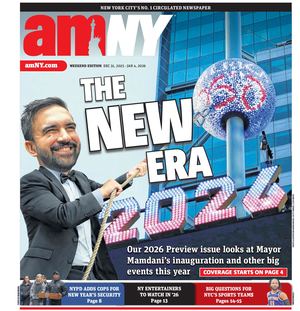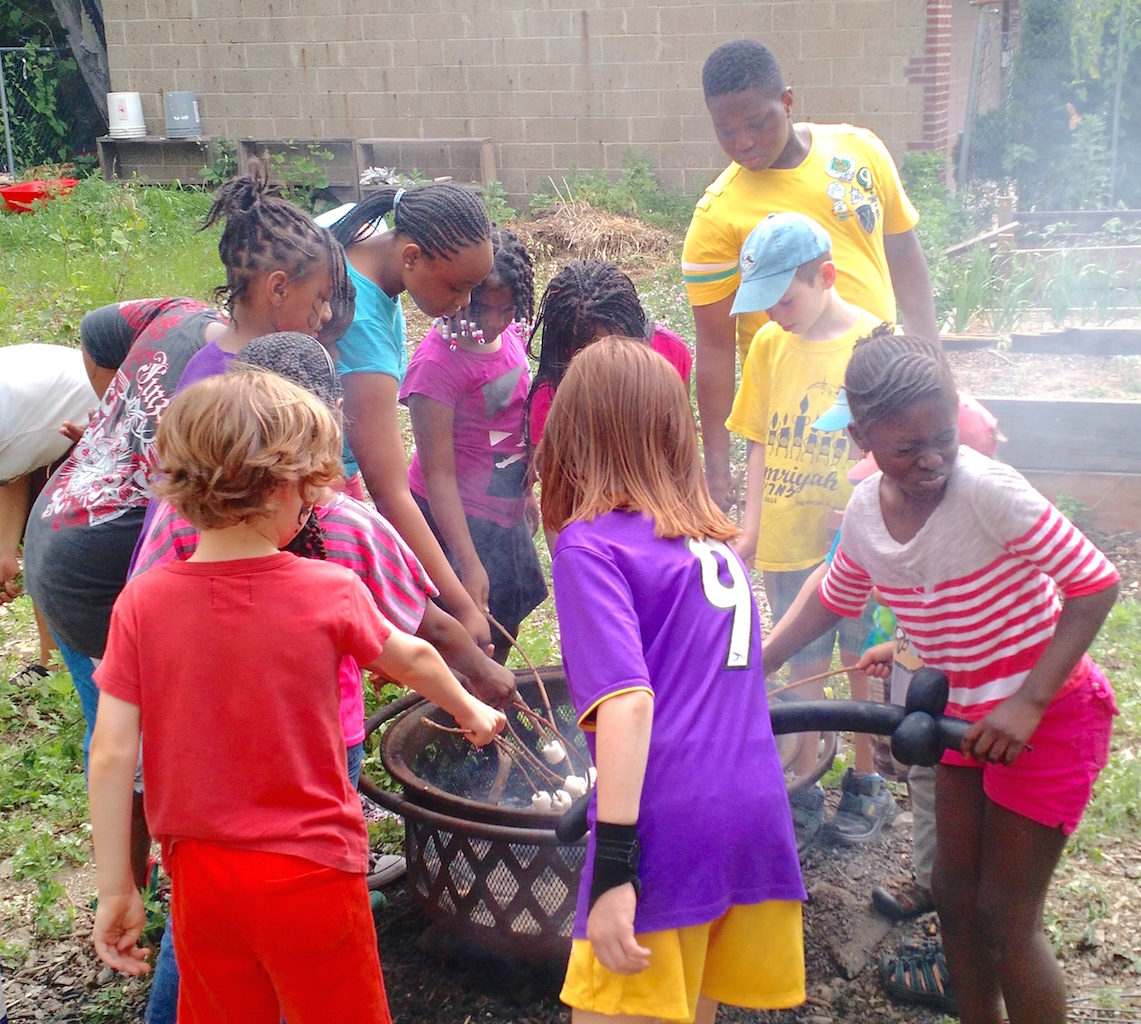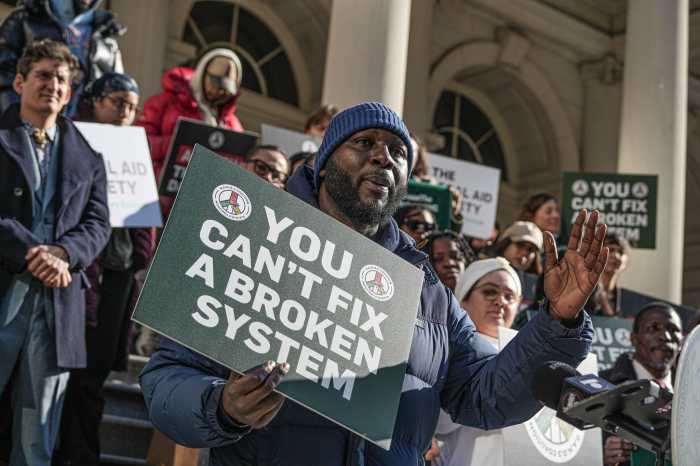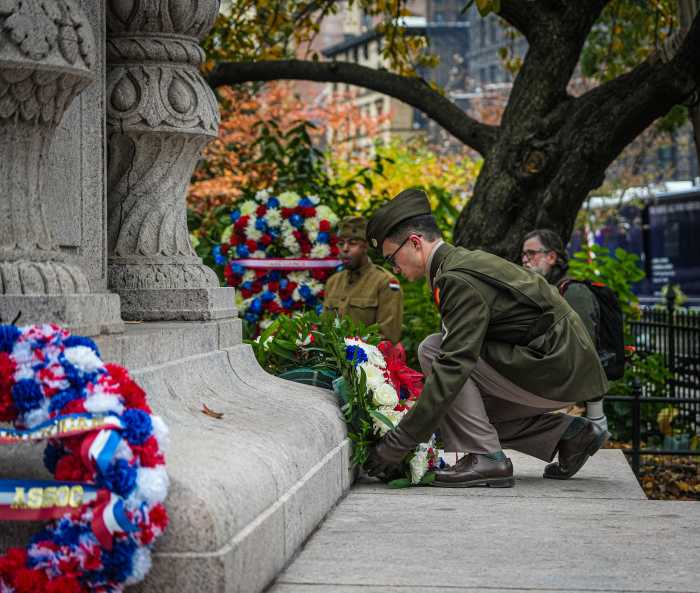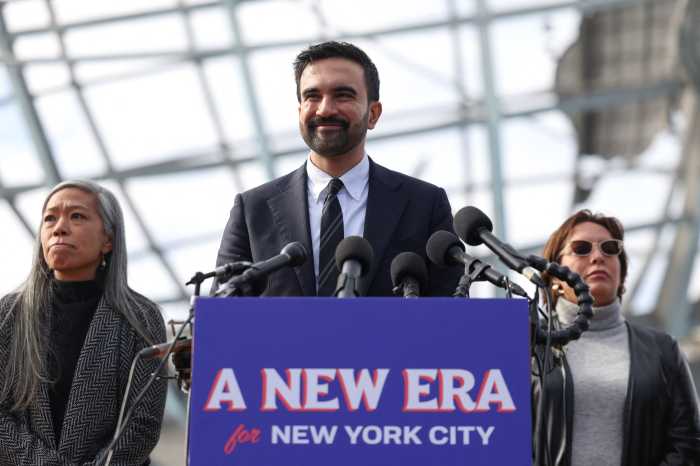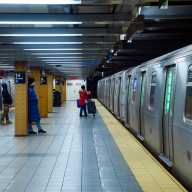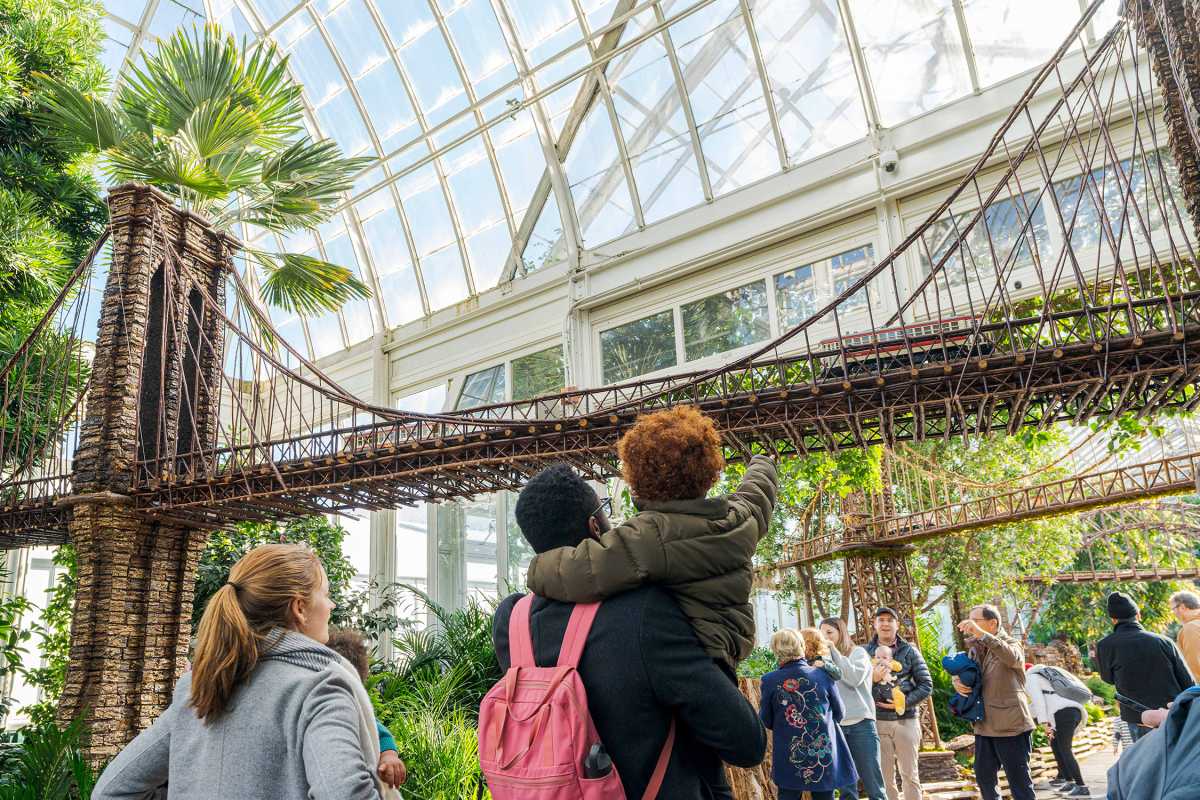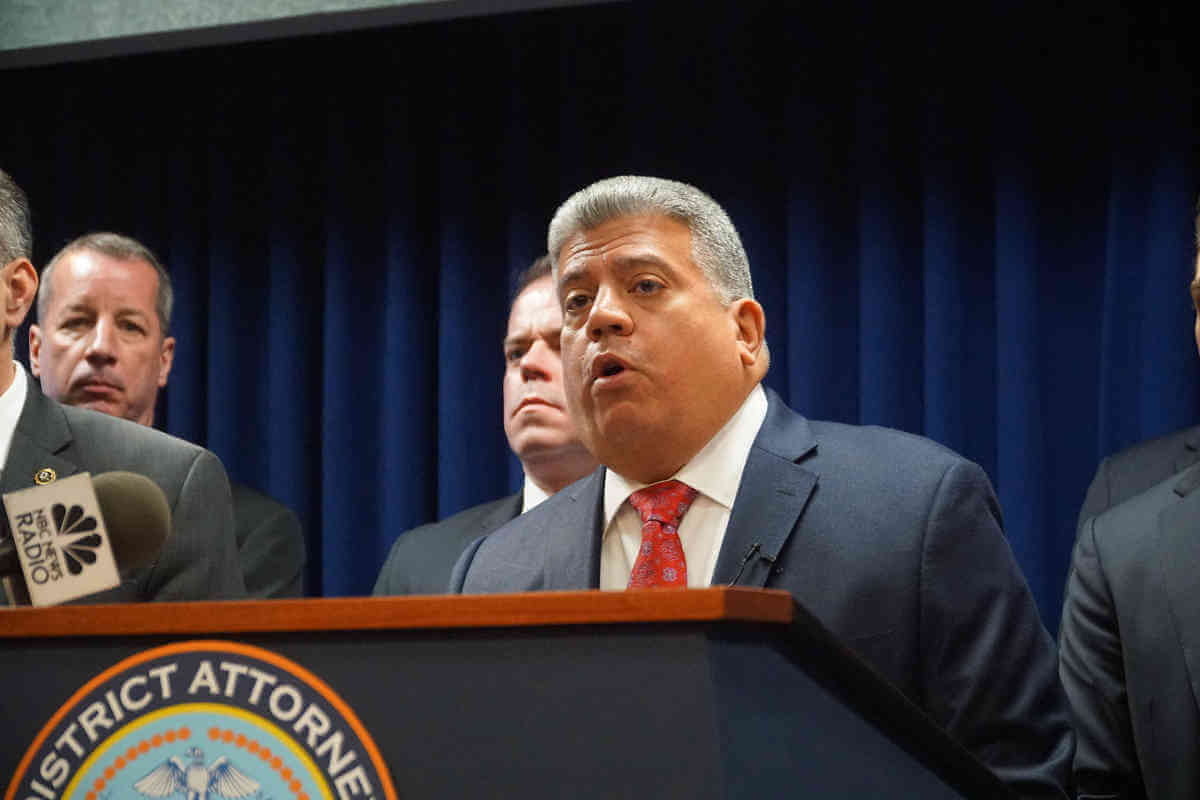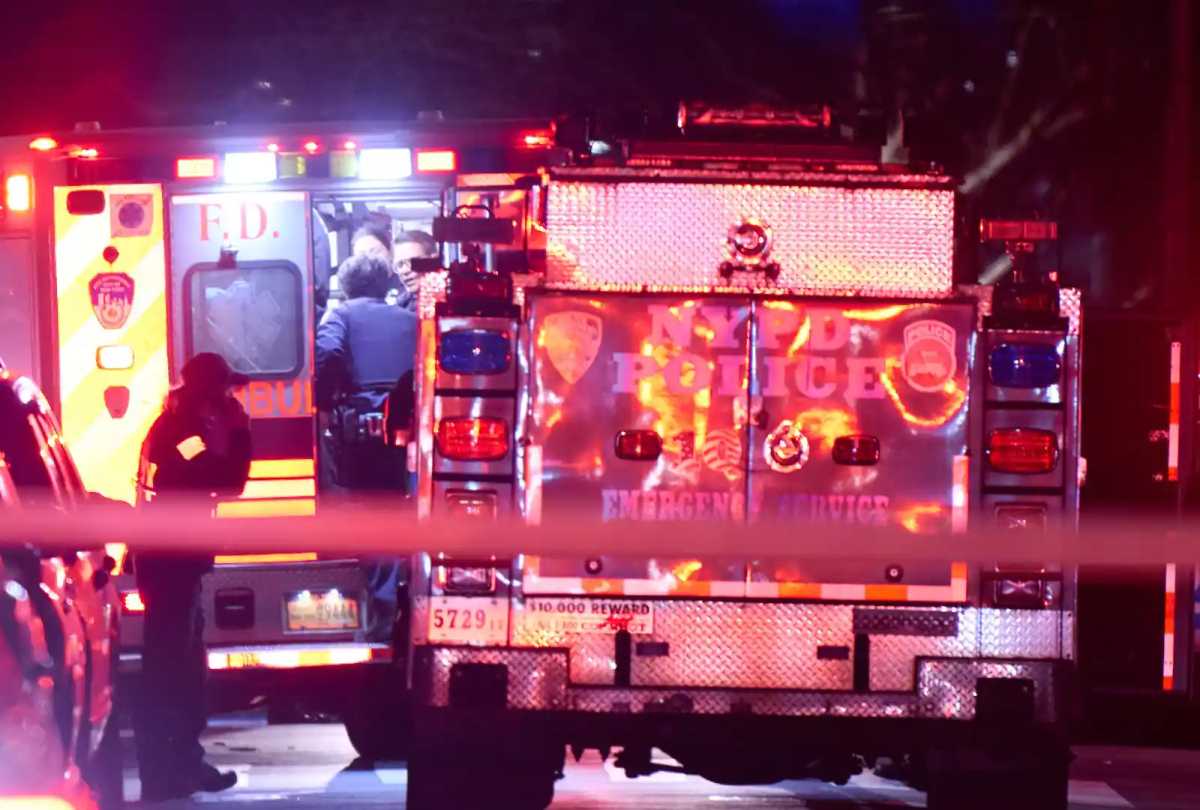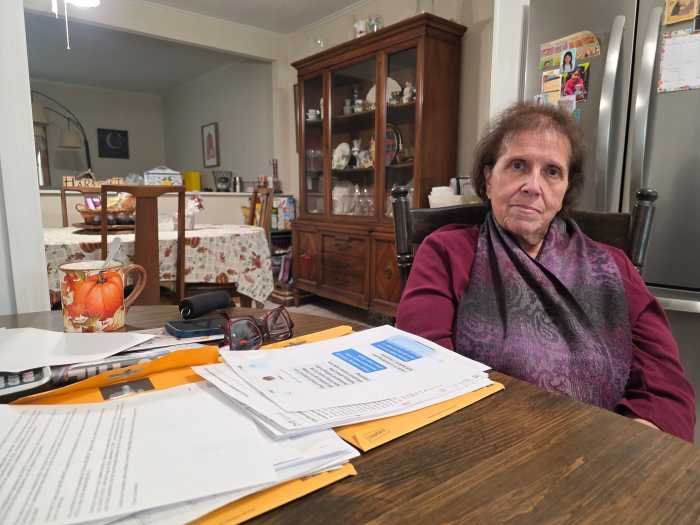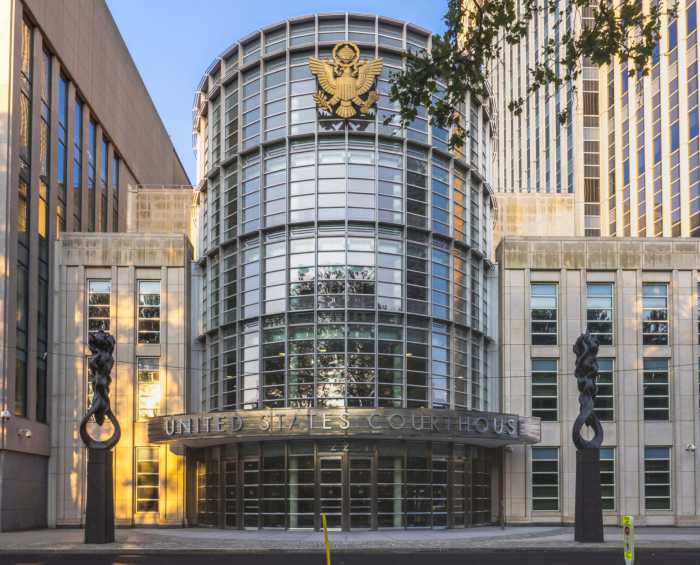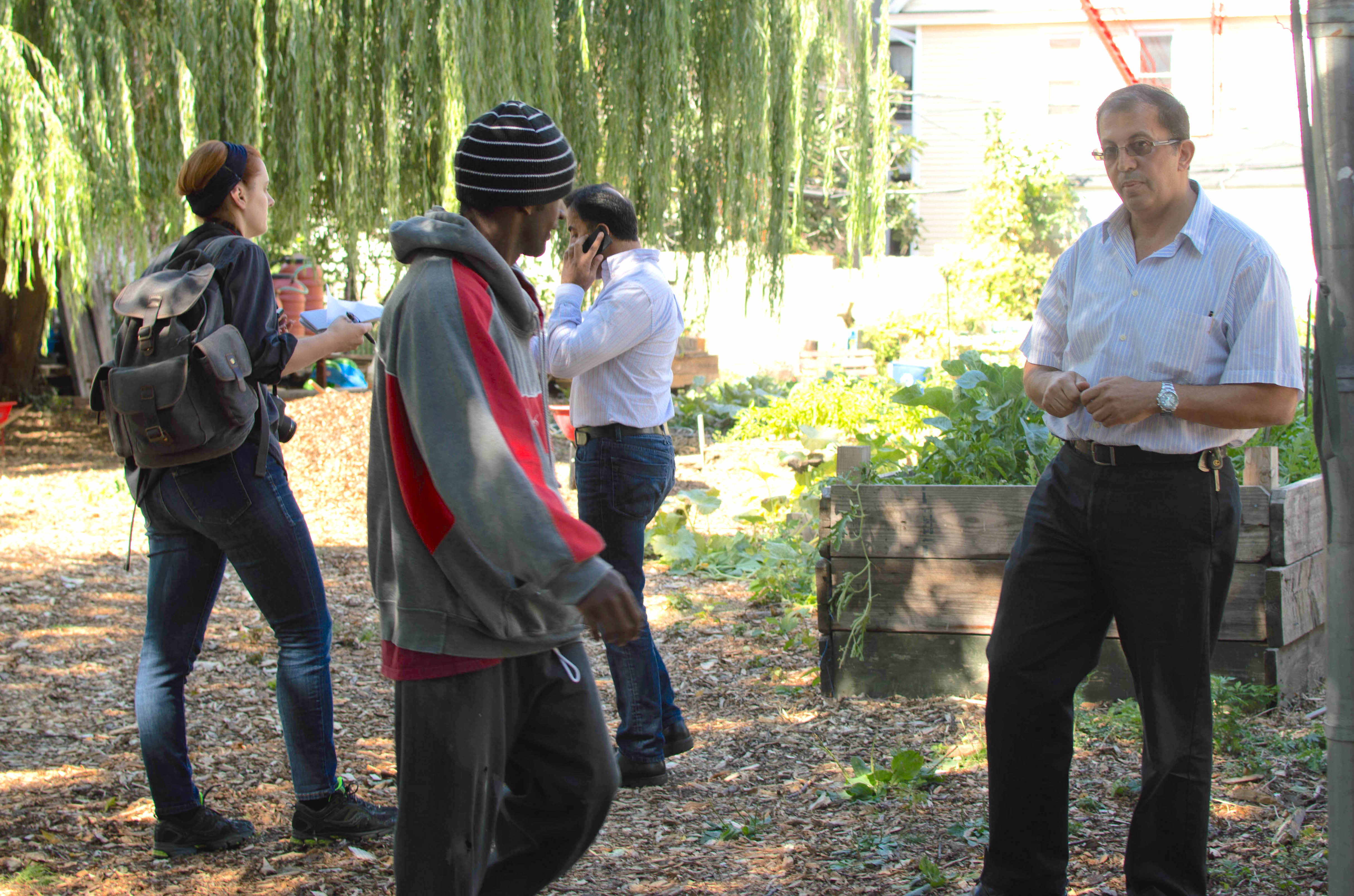
BY BILL WEINBERG | On Maple St. in the Brooklyn enclave of Prospect Lefferts Gardens there is a little plot of land filled with garden beds where local residents grow kale, garlic, beans, peppers and other such organic yummies. Aptly if not imaginatively named Maple Street Community Garden, this is, like many such gardens around New York City, reclaimed land. Before local residents moved in and started turning it into a garden three years ago, for years it had been a blighted vacant lot, weeds growing amid dumped washing machines and car parts.
“It was a total jungle,” said Tom La Farge, one of the gardeners. He was shoveling compost when I dropped by the garden on a cold day in early March.
The garden has received some acknowledgement from pillars of the city’s establishment. The Maple Street Block Association received a $1,000 grant from the Citizens’ Committee of New York to clean up the lot. The garden is now part of the GreenBridge network, set up by the Brooklyn Botanic Garden to promote urban greening with plant and seed donations.
But on Sept. 22, 2014, brothers Michael and Joseph Makhani — partners in a limited liability company claiming to own the plot — showed up at the garden, tore down the sign on the fence reading, “Maple Street Community Garden,” and told the gardeners to clear out. When they refused, the brothers retorted, “You’ll leave when the backhoes come,” La Farge recalled.
The following day, a work crew showed up in a truck. One of the garden beds was damaged before the police arrived. The cops sent the crew away.
“They know us, not them,” La Farge explained.
But in November, a notice of eviction from the Makhanis was placed inside one of the garden beds. This was the beginning of a complicated legal battle that is still not resolved, and on which the fate of the garden hangs.
The entity demanding eviction of the garden is Housing Urban Development LLC of the Makhani brothers, who have a history of dubious doings — beginning with the company’s name, obviously intended to sow confusion with the federal department of Housing and Urban Development (HUD). They are claiming the property on very murky grounds.
A house on the site had been abandoned after the elderly West Indian immigrant couple who had owned it died, and it burned to the ground in 1999. In 2003, the lot was sold to one Brooklyn LLC and then to HUD LLC — both entities of the Makhani brothers, in what La Farge calls a “shell game.” The plot had supposedly been sold to Brooklyn LLC by heirs of the couple who owned the house.
“We don’t think those heirs existed,” La Farge flatly told me.
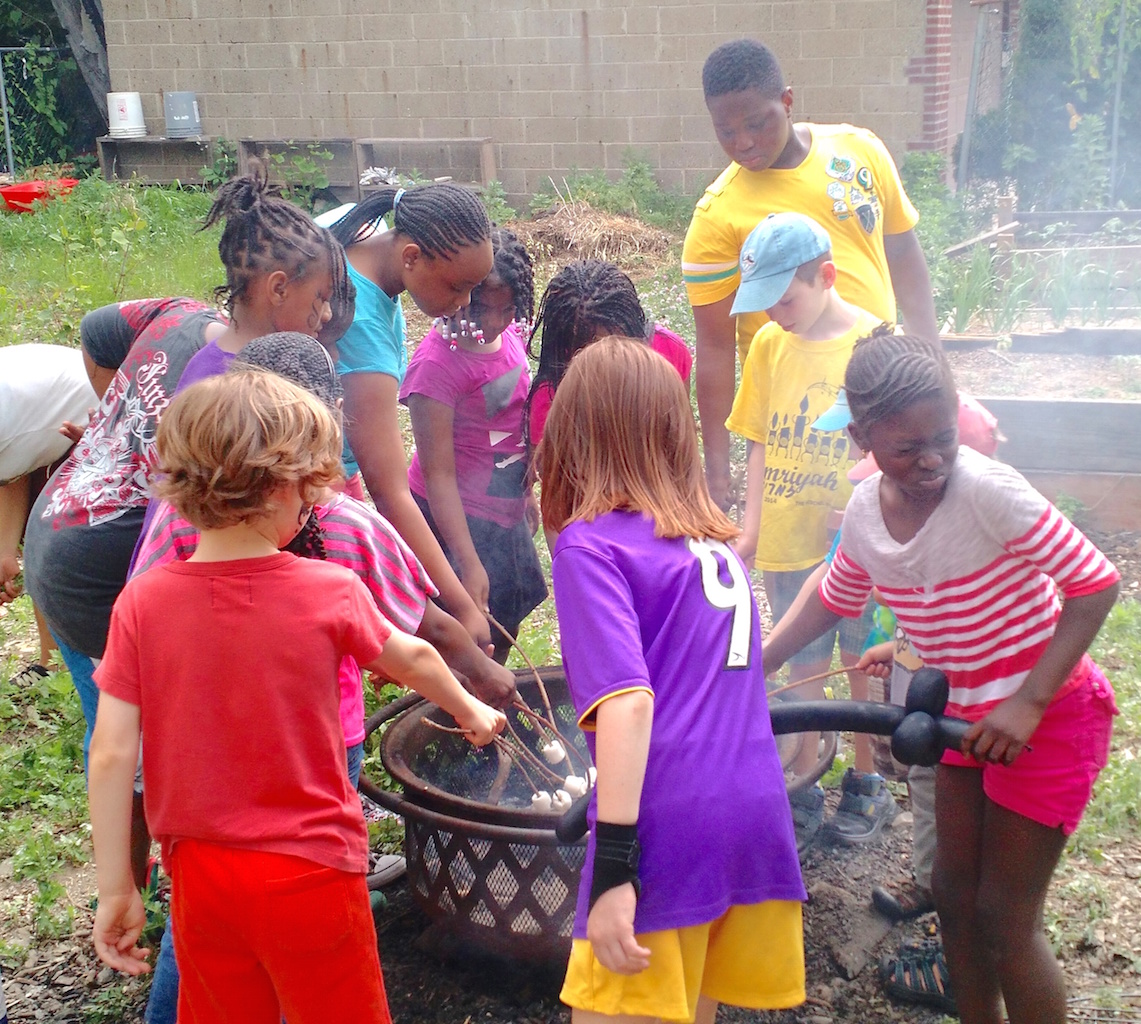
The gardeners hired an heir locator, who failed to turn up anyone. La Farge testified before the City Council in January on deed fraud — seeing the Maple St. example as a case study. The deed that the LLC produced contained numerous weird anomalies — including the ludicrously low price of $5,000 and obvious spelling errors. (The suspect deed was supposedly notarized in “Worchester, Massachusets” — with both the city and state spelled wrong!)
With eviction of the garden pending before city housing court, the LLC applied for the right to build a 17-unit condo development on site. They also went to state Supreme Court (actually the first level in New York’s court system), with a “motion to quiet title” — that is, to establish their clear ownership of the lot.
The gardeners were barred from the site by court order from June 25 to July 28, 2015. Then the Appellate Division overturned the restraining order, and the gardeners were let back in. The Supreme Court appointed a guardian to represent the interests of any heirs to the deceased owners. In December 2015 the guardian formally found that the gardeners could have continued access to the site. Housing court meanwhile barred the LLC from the property. For the moment, the tables had turned.
By then the case was getting some media attention, especially DW Gibson’s write-up in The Nation. Commentators recalled an earlier case involving the Makhani brothers that came to light thanks to the work of a trio of young filmmakers who were producing a documentary called “Subprimed” about the mortgage crisis in 2008. The Makhani brothers had their lawyer send the filmmakers a “cease and desist” letter to suppress the project, but this backfired, resulting in some unpleasant media coverage. Jim Dwyer wrote for The New York Times on Sept. 5, 2009, that “both Makhani brothers pleaded guilty in federal court in 1999 to taking part in a scheme involving foreclosed properties in Queens; they were fined and sentenced to three months in prison.”
The makers of “Subprimed” were looking into what the Times called the Makhani brothers’ “shady mortgage practices” in Brooklyn’s East New York neighborhood. This time they were doing business under the moniker Housing Preservation Development LLC — obviously intended to cause confusion with the city’s Department of Housing Preservation and Development! Asked by the filmmakers whether the name was intended to mislead, Joseph Makhani actually said, “If the client is stupid, that’s not my problem. We’re not going to have classes to teach people how to read.” (Rather than risk a legal battle, the makers of “Subprimed” have largely confined themselves to campus screenings of the film.)
The Makhanis’ attorney, Andrew Lolli of the firm Robinson Brog, failed to return repeated phone calls from this reporter asking for comment.
For now, the Maple Street Community Garden is still there. There is no lock on the gate, and by summer it should be bringing forth its fourth season of organic veggies. But the cases in housing court and Supreme Court are both pending. The gardeners are petitioning both the city and state to take the plot by eminent domain and formally turn it into parkland, with the garden protected in perpetuity.
Meanwhile, there are several such cases around Brooklyn and elsewhere in the city. The Eldert Street Garden in Bushwick and the Roger That Garden on Rogers Ave. in Crown Heights are waging similar battles against property grabs by suspected fraudsters.
The Lower East Side has the highest proportion of community gardens of any neighborhood in the city. But important test cases are underway in Brooklyn. If our experiment in reclaimed urban space is to survive, it might be time for some hands across the water… .
